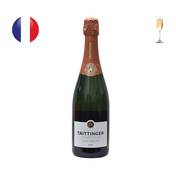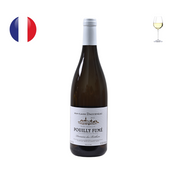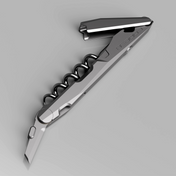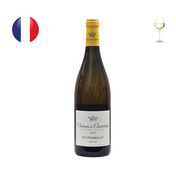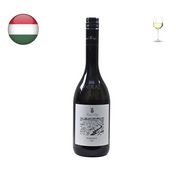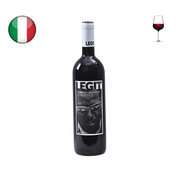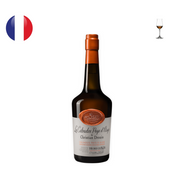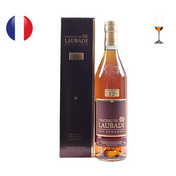A Family of Winemakers
The Dopff family's history in Riquewihr dates back to the 17th century. Jean-Daniel Dopff, a pastor's son, began as a baker and innkeeper. His son, Balthazar-Georges, became a cooper, starting a tradition that would continue for generations.
In the 19th century, Jean Dopff established the family as wine brokers. His son, Jean-Gustave, focused on creating the Dopff Estate. Gustave-Julien Dopff, in the early 20th century, expanded the estate significantly.
From then on, the Dopff family has passed down the secrets of winemaking from one generation to the next. They have dedicated themselves to crafting wines that reflect the unique terroir and grape varieties of the region.
Riquewihr
Situated beneath the Vosges foothills, Riquewihr offers an ideal climate for viticulture. Its southern exposure, exceptional soil, and microclimate create the perfect conditions for many white grape varieties.
Pioneers of Crémant d'Alsace
Julien Dopff, a visionary in Alsatian viticulture, introduced the "Méthode Champenoise" to the region. This innovative technique, which had been successful in Champagne, was adapted to create Crémant d'Alsace.
In 1976, with the support of Pierre Dopff, the AOC Crémant d'Alsace was established. Today, it represents over 50% of all Crémants produced, a testament to the Dopff family's pioneering efforts.
Pierre-Etienne Dopff continued to develop Crémant d'Alsace both regionally and within the Dopff Estate, expanding the range of products.
Inventors of the "Flute" Bottle
Julien Dopff also revolutionized wine packaging. In 1913, he introduced the "flute" bottle, a distinctive shape that became synonymous with Alsatian wines.
Despite initial resistance, Dopff successfully demonstrated the viability of this bottle through a series of experiments. His innovation was eventually recognized and adopted as the standard for Alsatian wines.
The Dopff Estate
With over 70 hectares of vineyards, it is one of the largest in the Alsace Grand Cru region. The estate has expanded beyond Riquewihr, encompassing vineyards in Hunawihr, Mittelwihr, Colmar, and Turckheim.
The Terroir
-
Grand Cru Schoenenbourg Located on the slopes of Schoenenbourg, this 53.40-hectare vineyard sits at 265 to 380 meters elevation on marl and gypsum soils. Known for its Riesling, Muscat, and Pinot Gris, it has been celebrated since the Middle Ages. Dopff’s 9-hectare portion includes 8 hectares of Riesling and 1 hectare of Pinot Gris, with each plot harvested and vinified separately, producing exceptional sweet Riesling wines.
-
Grand Cru Sporen with its 23.70 hectares, is a South-East facing slope near Riquewihr. Its clayey-marly soil is rich in phosphoric acid, contributing to the complexity and elegance of its wines. The vineyard focuses on Gewurztraminer and Pinot Gris, with Dopff's 1.33-hectare parcel exclusively planted with Gewurztraminer since 1965.
Grand Cru Brand de Turckheim This 58-hectare vineyard, overlooking Turckheim, benefits from its South-East exposure and granitic soil at 250 to 380 meters altitude. It produces full-bodied, elegant Riesling, Pinot Gris, and Gewurztraminer. Dopff’s 3.26-hectare plot is primarily Gewurztraminer, with a small amount of Pinot Gris, and the vines average 32 years old as of 2019.
Sustainable Winemaking
The Dopff Estate is committed to sustainable winemaking practices. They use organic methods, minimize chemical inputs, and protect their vineyards with natural pest control. The estate is also in the process of converting to 100% organic cultivation.
From Vine to Wine
The Dopff cellar master oversees the winemaking process, emphasizing patience and minimal intervention. The estate uses modern technology, such as refrigerated vats and pneumatic presses, while also preserving traditional methods like aging in oak casks.
Key Winemaking Practices:
- Fermentation: Grapes are fermented in stainless steel vats, allowing for precise temperature control and monitoring.
- Aging: Wines are aged in a combination of oak barrels and stainless steel tanks, depending on the desired style and complexity.
- Blending: For some wines, different grape varieties or vineyard parcels may be blended to achieve the desired balance and flavor profile.
Racy and Bold Wines
The Dopff Estate produces a range of still wines, including Grand Cru wines that showcase the unique terroir and grape varieties of the region. Their Riesling from Grand Cru Schoenenbourg is particularly renowned for its acidity and complexity.
Overall, Dopff au Moulin is celebrated for its rich heritage, commitment to quality, and innovative approaches in both still and sparkling Alsatian wines.


